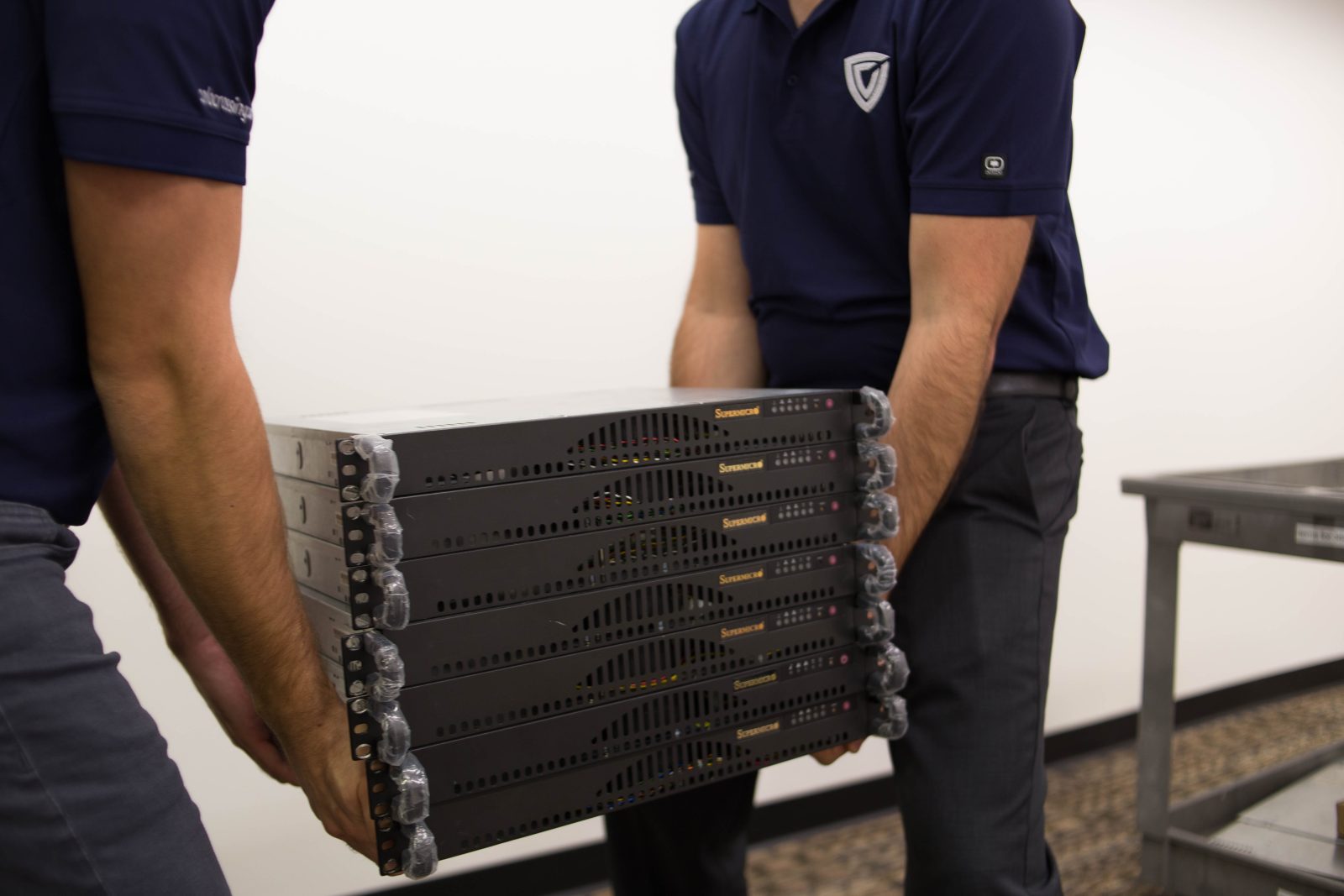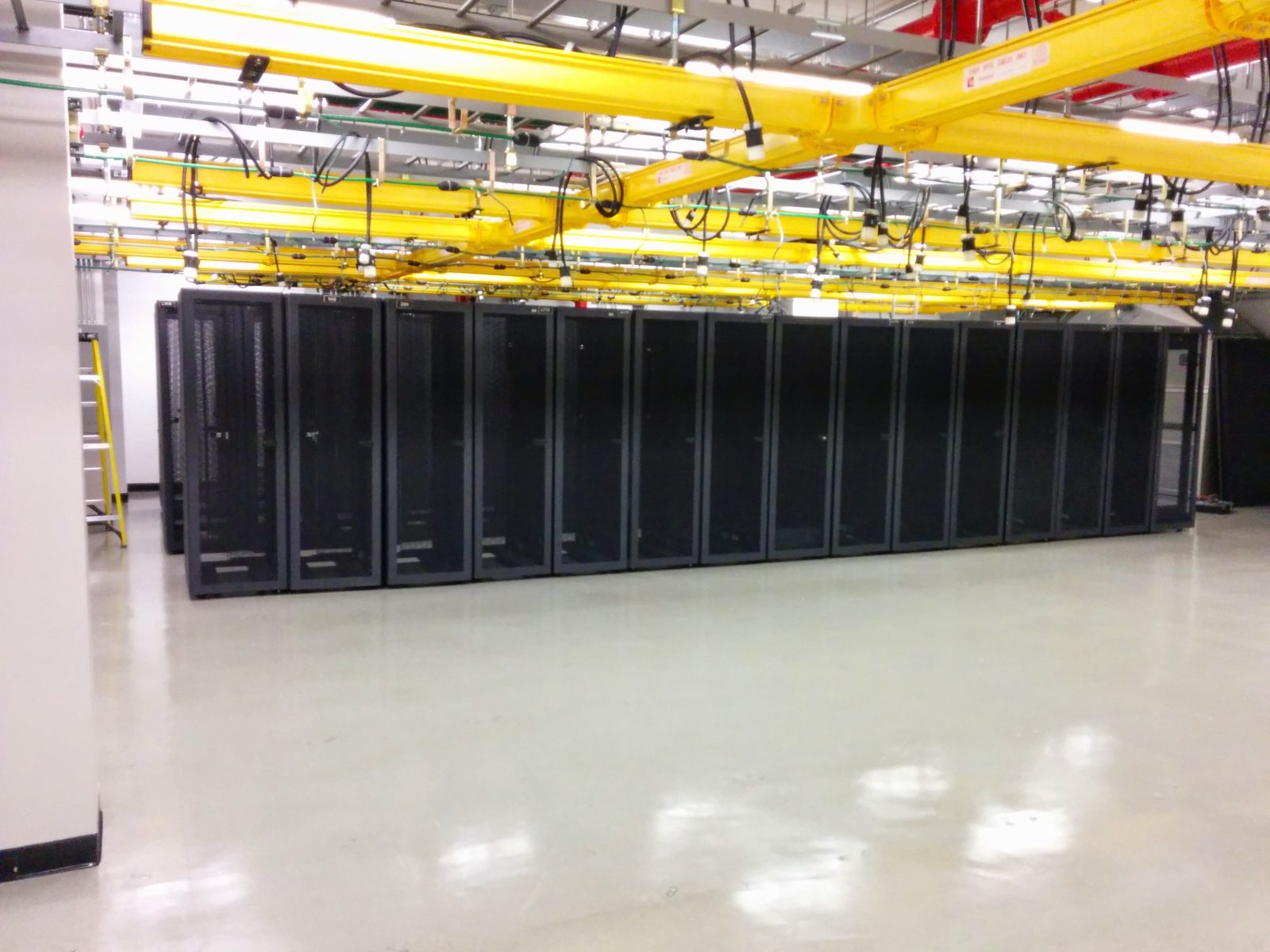Hosting applications in the Cloud with shared hosting or Virtual Private Servers (VPS) is a common choice for many businesses when they first start out. That’s because cloud-based hosting is easy to scale as your business grows and doesn’t require any capital expenditure — you simply pay a monthly (or, for a discount, yearly) subscription to run your software on someone else’s servers. Alternatively, you might choose to run your servers on site so you can closely monitor the security of your hardware and data.\
But as your requirements change and you begin to need more control over where and how you host your applications and services, it’s time to start thinking about alternative hosting models.
Colocation (where you rent an empty slot in a rack and supply the server) or dedicated server hosting (where you rent an existing server) both offer ways to combine the scale and reliability of an industrial-grade data center with the performance and control you get from using dedicated hardware.
Each of these two hosting options come with different tradeoffs. If you’ve got questions about which of the two choices is right for you, we’ll explain each of them in this article, along with their pros and cons.

What Is Dedicated Server Hosting?
Dedicated server hosting is a type of hosting where you rent access to a bare metal server inside of a data center. With this setup, the data center staff pre-install an operating system but you’re responsible for installing and configuring any additional software that’s necessary to run your application and services. Effectively, you’re renting not just the server hardware, but also any power, cooling, and network connectivity the server needs.
Dedicated servers can often be a cost-effective way to have a server all to yourself. Unlike running software in the Cloud, no other customers can run their apps on your hardware. It’s the best option when you need guaranteed behaviour and performance from your server.
Dedicated Server Hosting Pros
1. You Don’t Need To Purchase Hardware
Purchasing new servers is expensive. Just like with cloud-based hosting, relying on the data center owners to supply the hardware means you don’t need to buy it. And because data centers periodically refresh their hardware, you benefit from advances in server technology and the latest IT trends for free.
2. You Don’t Need To Maintain Servers
Data centers employ staff to monitor and manage all of their dedicated servers so you don’t have to. That includes handling any hardware component failures to ensure your servers remain in action. This can be a considerable cost saving because hiring your own staff comes with the overhead of salaries and on-going training.
3. Scale Your Servers As Your Business Grows
Because data centers have already made the hardware investment, you can easily add new dedicated servers by using their spare capacity. If demand for your business changes with the seasons, on-demand infrastructure lets you scale up as your business grows and shrink your IT footprint to reduce running costs during quiet periods.
Dedicated Server Hosting Con
You Can’t Customize Servers
The biggest drawback with dedicated hosting is that you have limited control over the choice of hardware and software. While many data centers offer multiple plans at various price points, you’re still buying off-the-shelf configurations chosen by the data center. That means you can’t use existing servers you might currently be running on site and you can’t optimize the hardware to hit the best price/performance ratio for your workloads.
Also Read : GPU Dedicated Servers and High-Density Colocation Services
The list of operating systems is also selected by the data center operator. If an application or library you’re using requires a specific OS or library version, you need to make sure it’s available on dedicated hosting plans.

What Is Colocation?
Colocation, otherwise known as colo, is an alternative hosting model where you put your own server into a rented rack slot inside of a data center. Unlike dedicated hosting, you are entirely responsible for managing the hardware: the data center only supplies the power, cooling, and Internet connectivity. In fact, some carrier-neutral data centers even let you arrange your own Internet connectivity and bring your choice of carrier into the colocation facility.
Many businesses take the servers they’re already running in their offices and install them into a colocation facility. That way, there’s no need to migrate applications to a brand new server — you can simply plug in your existing machine to the data center rack and take advantage of the high-speed connectivity, power redundancy, and disaster recovery provided by the data center.
Colocation Pros
1. You Control The Hardware Choices
Since you can build your servers exactly the way that you want, you’re able to tailor the setup to perfectly suit your workload. That can mean buying the very latest CPUs and disks or matching a low-end CPU with a huge amount of RAM. Either way, you can build to the exact specifications you need to meet your price/performance goals.
And if you already using servers on site, colocating them is simply a matter of installing them into a rack at the data center.
2. You Pick The Data Center Location
Each data center location charges prices that reflect their cost to supply power and run your servers, and those prices vary based on geographical region. Additionally, the network latency to reach those locations from your office is affected by distance. By carefully selecting your colocation facility, you can balance the hosting costs with the network latency incurred to reach the data center.
3. Private Connection To The Colo Facility
You can get all the advantages of colocation with the privacy and speed of on-premise hosting by establishing a dedicated line between your offices and the colocation facility. This allows you to use your servers as though they were physically located on site when they’re actually stored in a data center with improved security, power redundancy, and environmental control.
4. Environmental Control
When running your own servers, accurately monitoring and controlling their temperature is critical for avoiding overheating and component failure. Colocation facilities offer industrial-grade cooling equipment to ensure your servers always run at a specified temperature.
Colocation Con
You Are Responsible For Everything
From purchasing the server to installing the software and configuring it, you have the responsibility for setting up your server and keeping it running. And that includes shipping your server to the data center.
Because you own the hardware, when something goes wrong it’s up to you to identify and diagnose the issue, which sometimes means travelling to the data center, for example, when you’re unable to use the remote console to troubleshoot the problem. While many data centers offer managed services (sometimes called remote hands) where they will take care of installing and managing your servers for an additional fee, there are limits to the work they will do.
Ultimately, when you use colocation the buck stops with you.
Which Option Is Right For You?
It would be nice if a simple rule of thumb existed to help you choose between colocation and dedicated server hosting. Sadly, no such shortcut exists — making the right choice depends on the circumstances of your business.
Dedicated hosting helps you scale in response to changing demand without the need to purchase hardware or invest in IT support staff. Thanks to the scale of economies present in data centers, you can take advantage of high-speed Internet connectivity and the latest server technology without the responsibility of maintaining it.
For some companies though, colocation is the better choice. Since most colocation contracts are customized to satisfy individual business needs, it gives you much more control over the infrastructure underneath your applications. And because you’ve invested the capital to purchase the hardware, colocation can be more cost-effective than dedicated hosting over the long term.
What is the difference between dedicated hosting and colocation hosting?
In dedicated hosting, you rent an entire server managed by the hosting provider. In colocation hosting, you own the server hardware but rent space, power, and bandwidth in a data center.
Who should use dedicated hosting?
Dedicated hosting is ideal for businesses with high traffic websites, resource-intensive applications, or the need for enhanced security and customization options.
What is an advantage of a dedicated server hosting service?
The main advantage of dedicated server hosting is exclusive resources, offering better performance, reliability, and customization for your applications.
Why shared hosting is better than dedicated hosting?
Shared hosting is more cost-effective and easier to manage, making it ideal for small websites or beginners with lower resource demands.
Is dedicated hosting more expensive?
Yes, dedicated hosting is generally more expensive because you are paying for exclusive server resources, advanced security, and better performance.

